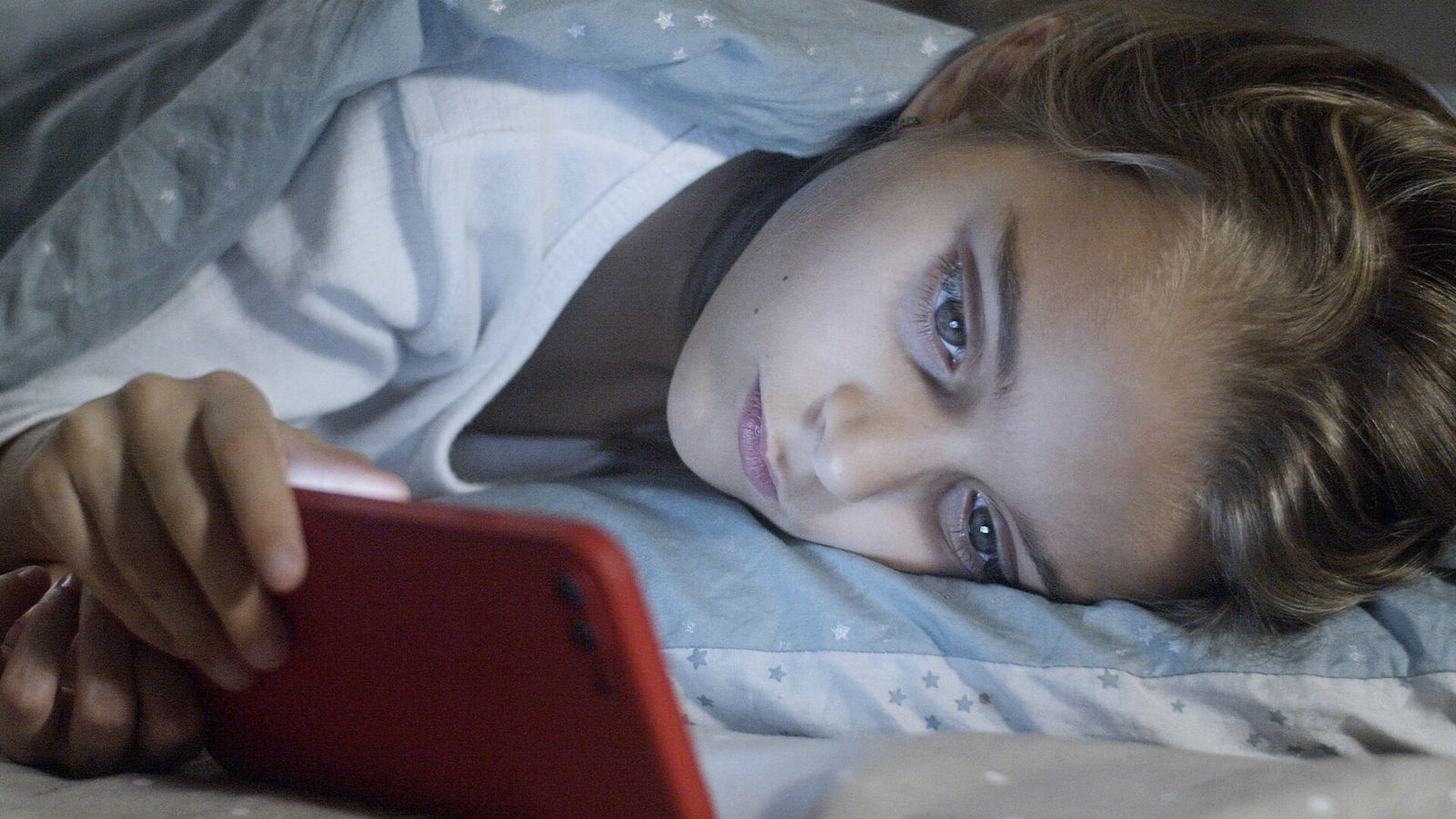
By India McCarty
Troubling “nudify” apps and websites are gaining popularity. What are they, and how can parents keep their kids safe from them?
“No one thinks that could happen to you,” 14-year-old Francesca Mani said in a recent episode of 60 MINUTES (video via YouTube).
Mani and many of her female classmates were shocked when they found out “nudified” images of themselves were circulating around their school.
“Nudify” apps and sites take a normal photo of someone and, after it is run through AI software, create an authentic-looking nude image. This tech’s popularity has led to conversations about creating legislation banning “nudify” apps.
“I was walking through a hallway, and I saw this group of boys laughing at this group of girls crying,” Mani, an outspoken advocate for victims of “nudification,” recalled. “And that’s when I realized I should stop crying and be mad, because this is unacceptable.
Mani and her mother have begun urging schools to put policies in place to protect young people from AI image-generation, as well as punish classmates who might be creating such images.
Others are urging politicians to pass legislation surrounding the technology. In San Francisco, a first-of-its-kind lawsuit was filed, calling for these “nudify” sites to be shut down.
“The proliferation of these images has exploited a shocking number of women and girls across the globe,” David Chiu, the elected city attorney of San Francisco who brought the case against a group of the sites, said.
In an interview with The AP, he added, “These images are used to bully, humiliate and threaten women and girls. And the impact on the victims has been devastating on their reputation, mental health, loss of autonomy, and in some instances, causing some to become suicidal.”
Related: Will This Act Help Protect Children From Sexual Content Online?
Others are calling for the Take It Down Act to be passed. Co-sponsored by Sens. Ted Cruz and Amy Klobuchar, the bill would make it illegal for someone to “knowingly publish” non-consensual sexually explicit material.
“The TAKE IT DOWN Act gives victims of revenge and deepfake pornography — many of whom are young girls — the ability to fight back,” Sen. Cruz said in a statement about the bill. “Under our bipartisan bill, those who knowingly spread this vile material will face criminal charges, and Big Tech companies must remove exploitative content without delay.”
Sen. Klobuchar added, “We must provide victims of online abuse with the legal protections they need when intimate images are shared without their consent, especially now that deepfakes are creating horrifying new opportunities for abuse. Passing this bipartisan legislation builds on my work to ensure that victims can have this material removed from social media platforms and law enforcement can hold perpetrators accountable.”
So, what can parents do to keep their kids safe from this technology?
Experts advise having conversations with your children about privacy and why it is important for any social media accounts to be private, as well as teach responsible phone use.
Additionally, they stress the importance of contacting schools and authorities immediately if your child has been targeted by someone using this “nudify” technology. It is also important to push for legislation like the Take It Down Act, which can help protect your children from becoming victims of these apps and sites.
As AI technology becomes better and more easily accessible, it is vitally important to keep your children safe and support those who are working to regulate this tech.
Read Next: Melania Trump Lobbies for Bill to Ban Revenge Porn and AI Deepfakes



 - Content:
- Content: 

